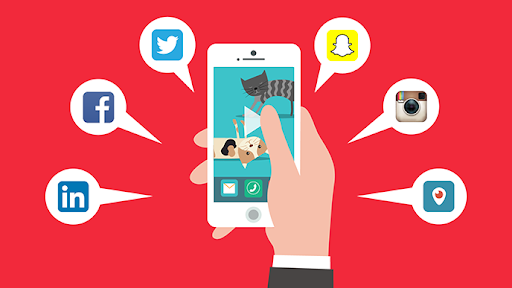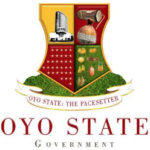Habeeb B. Adefabi
Copyright law seeks to strike a balance between the rights of the creator and the copyright owner, so that they may manage and protect their business and works. Presently, copyright has become very important, particularly in terms of information.
The internet has allowed consumers across the globe to access information easily and with less boundaries. Yet, this tool has allowed consumers to access and reproduce works without adhering to copyright requirements.
How has copyright law dealt with this global problem? How has the Nigerian law protected an online content creator and how can it seek to alleviate the struggles of a content creator?
Copyright is a legal term used to describe the rights that creators have over their literary and artistic works. Works covered by copyright range from books, music, paintings, sculpture, and films, to computer programs, databases, advertisements, maps, and technical drawings.
It is the exclusive and assignable legal right given to the originator for a fixed number of years to print, publish, perform, film, or record literary, artistic, or musical material. Through the registration of the creator’s work, he can claim over such work against piracy and theft of his intellectual property.
Under the Nigerian Copyright Act (“the Act”), copyright infringement is prohibited by Section 15(1)(a) which provides that “Copyright is infringed by any person who without the licence or authorisation of the owner of the copyright (a) does, or causes any other person to do an act, the doing of which is controlled by copyright.”
This provision simply stipulates that where anyone without the approval of the owner or creator, re-creates a copyrighted work, such person automatically infringes the right of that owner/creator. So, where an influencer posts anything belonging to another person, he would be liable for the infringement of copyright.
The emergence of social media has given individuals the opportunity to showcase their talents and marketing skills. Many have overtime, amassed large followings and subscribers on the various social media platforms like Tiktok, Twitter, Facebook, LinkedIn, Instagram, Pinterest and many more by creating content and posts that are attractive, entertaining and enlightening to their followers and other persons that come across their page. By doing this, they’ve been tagged ‘Influencers’.
They utilize this large following of theirs to work for big brands in marketing their products. Social media influencing has become a wide platform to get information on different brands to people. Asides marketing, it serves as a platform for content creators to showcase their talent an example of which are Nigerian stars like Taaooma, Mr Macaroni and many more. International stars like Harley Georgia Morris on Tiktok, Keemokazi, Khabylame and several more.
In Nigeria, there are no specific laws on social media influencing. However, there are several laws in Nigeria regulating advertising which can be relied on. These laws are both general and sector-specific hence when applied to social influencing; it would depend on the product being advertised. As a social media influencer, what you run is a business and if the sectors you trade do not have laws to regulate and protect you, it falls on you to devise ways of protecting yourself. These ways include; researching and having due diligence about the company, brand and product you are influencing. You should also review and draft agreements to govern your transaction with the various brands, so as to expunge yourself of liability in case of actions relating to the brand.
When you post your creative work on social media, you continue to own the copyright. No one can use the work without your permission, nor does the platform take ownership. However, there is an exception: by posting on a platform such as YouTube or Twitter, you are agreeing to the site’s terms of use, which often give the site a license to use your work. As a user of social media, you need to understand the terms of service you are agreeing to and then comply with them.
The Twitter terms of service state that; “You retain your rights to any content you submit, post or display on or through the services. By submitting, posting or displaying content on or through the services, you grant us a worldwide, non-exclusive, royalty-free license (with the right to sublicense) to use, copy, reproduce, process, adapt, modify, publish, transmit, display and distribute such Content in any and all media or distribution methods (now known or later developed)”. In other words, Twitter users grant Twitter a license to make Tweets available to other Twitter users. Facebook has similar terms with Twitter.
In view of the aforementioned, there are constant infringements of intellectual property rights. The content posted by users on social media sites including videos, photos, songs, illustrations, etc. are used by third parties on a daily basis by individuals and companies, whether or not they are users of social media, without being previously authorised by the owner of the rights. This practice constitutes a violation of the intellectual property rights.
An example is the use of third-party photographs in the United States which resulted in a judgment of liability for copyright violation. It was the dispute between Haitian photographer Daniel Morel and press agencies Agence France Presse and Getty Images. The facts were that Daniel Morel, who was in Haiti at the time of the earthquake in 2010, took several photographs there and posted them on his TwitPic account, the Twitter application for users to share images. Through a third user, the referred press agencies had access to the images and sold them to media companies around the world, without the authorisation of the photographer and without mentioning him as the author of the same.
The matter in the court lasted three years, with the subsequent costs, and the federal jury presided over by Judge Alison Nathan finally ordered the agencies to pay $1,200,000 as compensation for violation of intellectual property rights. Copyright was deemed to have been infringed precisely on the grounds that, contrary to the argument posed by the agency (that everything that is published on Twitter may be used without any authorisation being required), Twitter‘s licences do not include the right to use users’ content for commercial purposes.
Consequently, while being an influencer is lucrative and profitable, it is important for influencers to put into consideration the concerns raised in this article. While surfing through the various social media platforms as a user, we should be aware of the little acts that constitute infringement. Also, we should be aware that intellectual property law applies to all contents which meets the necessary criteria.
Adefabi wrotes via [email protected]

 Join Daily Trust WhatsApp Community For Quick Access To News and Happenings Around You.
Join Daily Trust WhatsApp Community For Quick Access To News and Happenings Around You.


